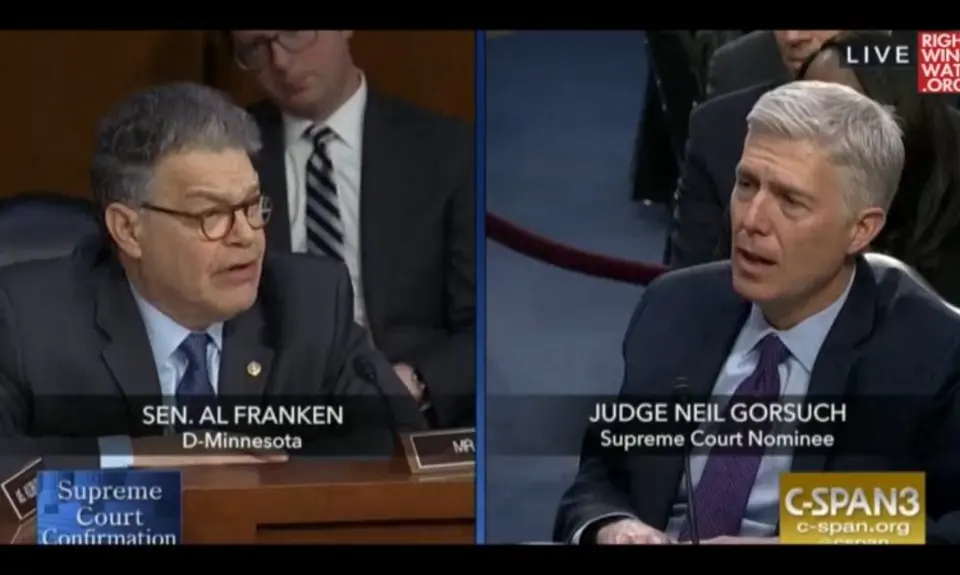Today Sen. Al Franken, D-Minn., addressed Judge Neil Gorsuch’s opinion in the “frozen trucker case,” where a truck driver was fired over actions that saved his life but required him to briefly abandon his trailer.
While a majority of the Tenth Circuit Court panel ruled that the firing was unlawful, Gorsuch dissented and found that the firing was legal.
Franken recounted the facts of the case, noting that Gorsuch’s opinion seemed to abandon any sense of reality: “It is absurd to say this company is in its rights to fire him because he made the choice of possibly dying from freezing to death or causing other people to die possibly by driving an unsafe vehicle. That’s absurd. Now I had a career in identifying absurdity, and I know it when I see it. And it makes me question your judgment.”
As noted in the report, “Real People, Real Lives: The Harm Caused By Judge Gorsuch,” Gorsuch essentially argued that a “law passed to protect workers from being forced to drive unsafe vehicles doesn’t cover workers who drive away to avoid the particularly unsafe situation of death”:
While Chris Carder died on the job, Alphonse Maddin was fired for not dying on the job. He was a truck driver hauling cargo in subzero weather, and the brakes on his trailer froze. He stopped, called the company to report the problem, then waited for a repair person. Unfortunately, the heater in the cab of the truck wasn’t working, so after a couple of hours, his body became numb, his speech was slurred, and he couldn’t feel his feet at all. He called the company two more times and reported his increasingly perilous state; he was even having trouble breathing.
Maddin unhitched the trailer from the truck. With the repair person still not there, he called the company to let them know he was leaving to get help, but he was told not to leave the trailer behind. He was given two choices: drag the trailer despite its frozen breaks (either impossible or wildly dangerous), or keep waiting for the repair person in the cold and put his own life at risk.
Rather than die in the cold, Maddin drove off in the truck for help, leaving the trailer behind and returning with assistance in about 15 minutes. A week later, the company fired him for abandoning his cargo. The Labor Department found that the company had violated whistleblower protection regulations, since Maddin had reported a problem, not obeyed an order relating to that problem that could have killed him, and was fired for it.
Not surprisingly, in TransAm Trucking v. Administrative Review Board (2016), a panel of Tenth Circuit judges upheld the Labor Department’s actions. But Judge Gorsuch dissented. The Surface Transportation Assistance Act protects a worker from refusing to operate an unsafe vehicle, but Gorsuch reasoned that the driver wasn’t “refusing to operate” anything at all; instead, he was choosing to operate the vehicle in a way that he’d been instructed not to. And that, wrote Gorsuch, isn’t covered by the law.
So according to Gorsuch, a law passed to protect workers from being forced to drive unsafe vehicles doesn’t cover workers who drive away to avoid the particularly unsafe situation of death. The law empowers companies to make workers choose between their jobs and their lives, according to Gorsuch. Fortunately, Maddin survived his ordeal, and Gorsuch’s analysis did not carry the day.





